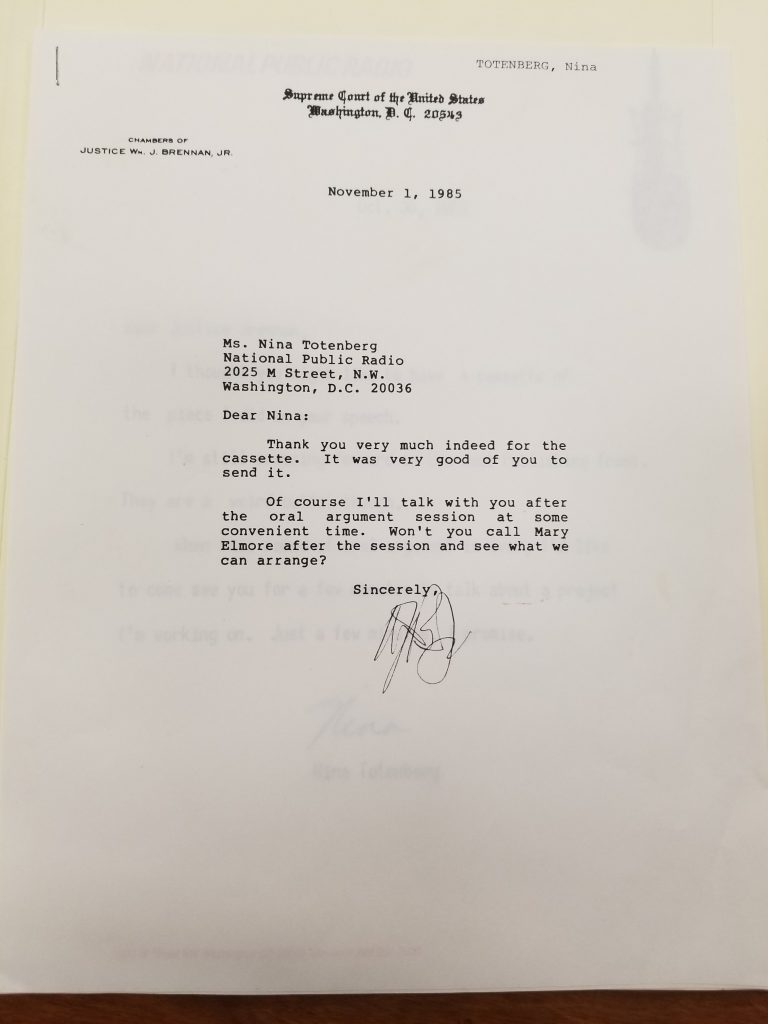During my trip to the Library of Congress to investigate Justice Brennan’s correspondences with Merrick Garland (there were none) an archivist suggested I pull the “O” box. Why, I asked? He said there was a letter from a person who is now famous, but when the finding guide was prepared, that person was not yet famous. I thought about it for a moment, and then it hit me: Obama.
In the “Ob-Og Miscellaneous” folder was a December 7, 1990 letter from , Barack Obama, then the President of the Harvard Law Review to Justice Brennan:
Dear Justice Brennan:
As you may already know, the November 1990 issue of the Harvard Law Review contained a tribute to you and your historic work on the Supreme Court. [JB: There were tributes from Thurgood Marshall, Abner MIkva, Richard Posner, Norman Dorsen, Frank Michelman and Nina Totenberg.] Although we recognize that such a tribute can only be a small measure of the esteem with which you are held — by both your colleagues and the nation — we nevertheless thought that you might appreciate a few copies.
I would also like to take the opportunity to add a brief personal note. Prior to attending law school, I was the director of a community development organization in a low-income black neighborhood in Chicago. I recall harboring considerable doubts about leaving my grass-roots work to become a lawyer — I felt concerned that too often the law served the interests of the powerful, and not the powerless. In the midst of my internal debate, I was fortunate enough to hear your interview with Nina Totenberg on National Public Radio. The wisdom and conviction of your words in that interview helped to convince me that legal practice in fact could be a worthwhile pursuit.
Since that time, I have read a countless number of your opinions in my course-work, and have always found in these decisions an unwavering commitment to “the little guy,” the underdog, and the less fortunate. Your blend of “reason and passion” has been a source of inspiration in the development of my own legal ideas. Moreover, as an African-American who a generation ago might not have even attended Harvard Law School, much less served as the President of its Law Review, I have been reminded of the debt that many of us owe to you in helping America live up to its ideals of opportunity for all its citizens.
For a variety of professional reasons, I have decided not to clerk after graduation. Nevertheless, I expect that your work will continue to inspire not only me, but countless other law students, lawyers and judges across the country for generations to come. I am sure that I speak for others when I thank you for all that you have taught us.
Sincerely,
Barack Obama
President
Harvard Law Review
Volume 104
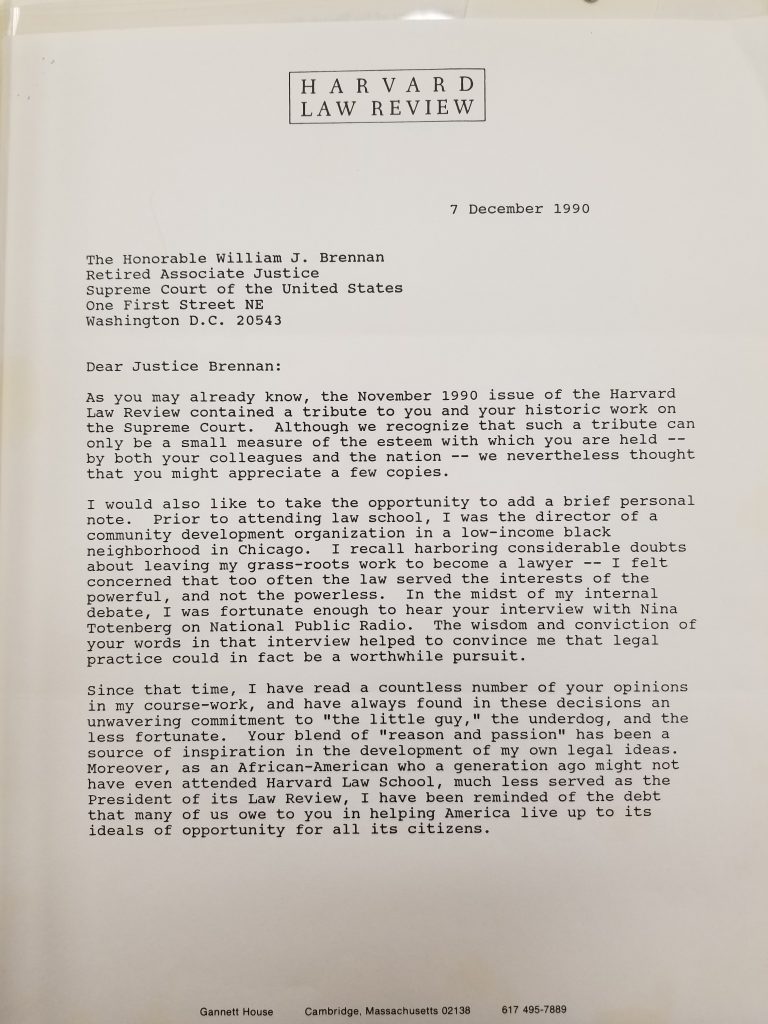
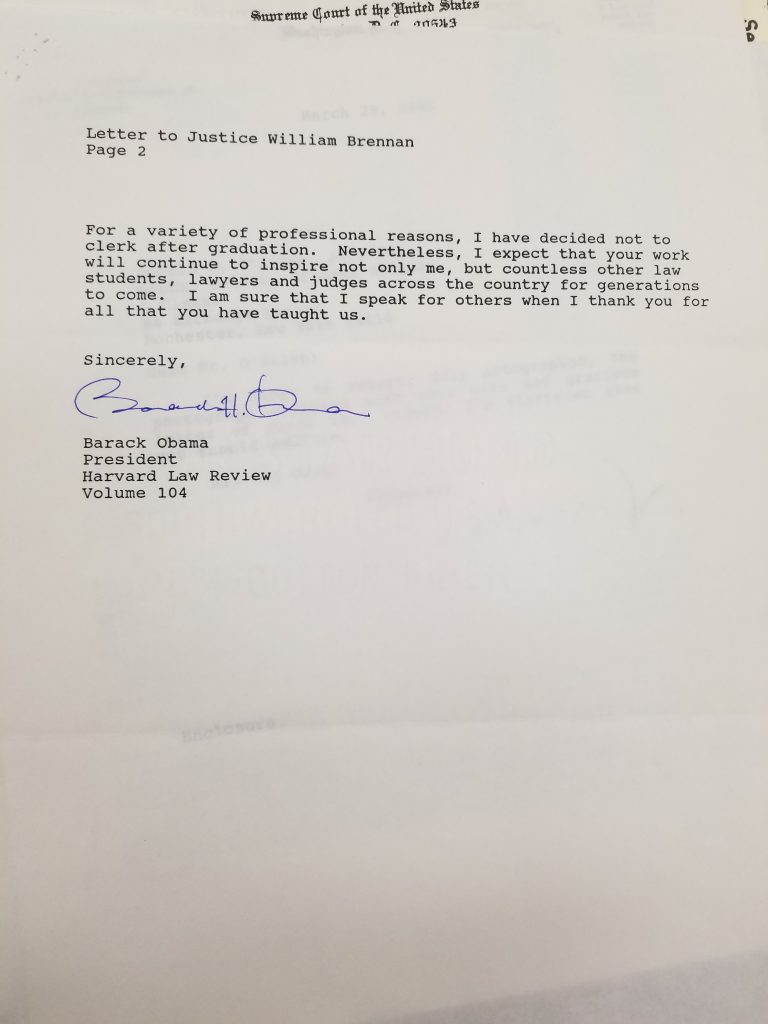
Six days later, Justice Brennan wrote back:
Dear Mr. Obama:
Thank you for sending me the reprints of the November 1990 issue of the Harvard Law Review. I am most touched by the tribute and simply cannot put into words how I feel. And I am most grateful to you for the kind comments in your letter. Thank you again very, very much.
Sincerely,
William J. Brennan
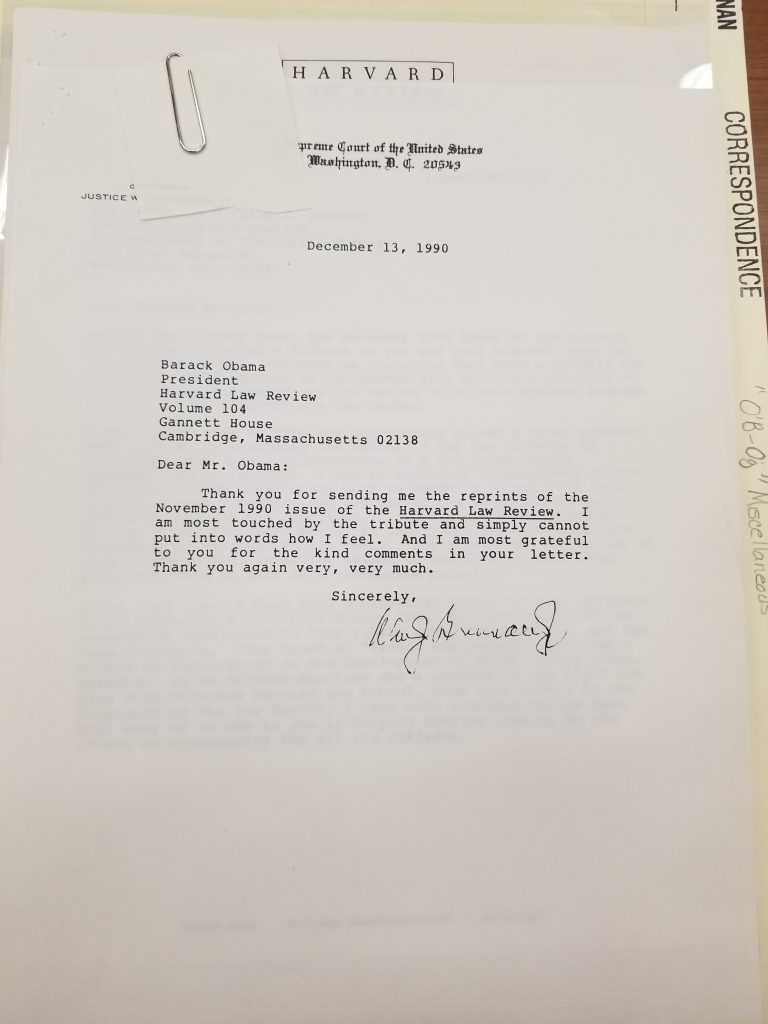
As soon as I found these documents, I contacted Nina Totenberg, so she could have the scoop. And scoop she did.
I now find that my husband was right for 8 yrs: @BarackObama SHOULD have invited me to the W.H. 4 dinner. Turns out I am responsible for him becoming a lawyer. Well, me and Justice Brennan lol.
(Thanks to @JoshMBlackman 4 sending me this.) pic.twitter.com/4miM00JPEq— Nina Totenberg (@NinaTotenberg) March 15, 2018
I also found other correspondences between Justice Brennan and Nina Totenberg.
On October 30, 1985, Totenebrg wrote to Brennan:
Dear Justice Brennan,
I thought you might like to have a cassette of the piece I did on your speech. [JB: I suspect this was a reference to Brennan’s October 12, 1985 speech at Georgetown University where he responds to Attorney General Meese’s “Jurisprudence of Original Intention” lecture to the American Bar Association three months earlier.]
I’m still pressing forward on the West Publishing front. They are a weird outfit though.
When this round of oral argument is over, I’d like to come see you for a few minutes to talk about a project I’m working on. Just a few minutes, I promise.
Nina Totenberg
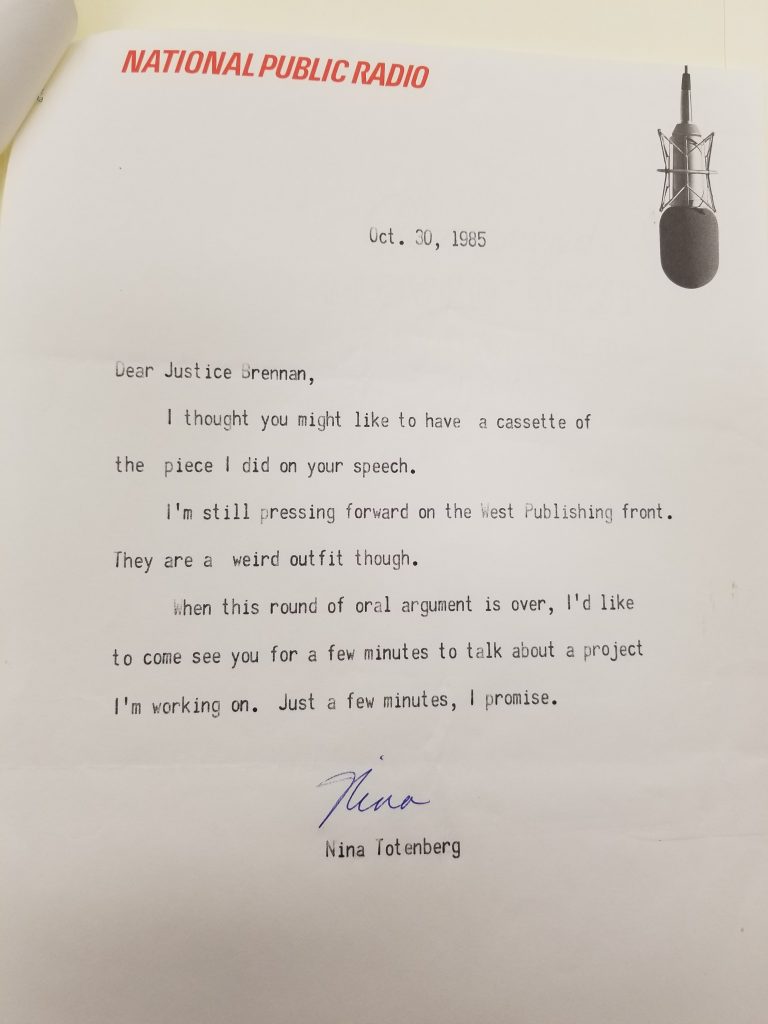
Two days later, Justice Brennan wrote back:
Thank you very much indeed for the cassette. It was very good of you to send it.
Of course I’ll talk with you after the oral argument session at some convenient time. Won’t you call Mary Elmore after the session and see what we can arrange?
